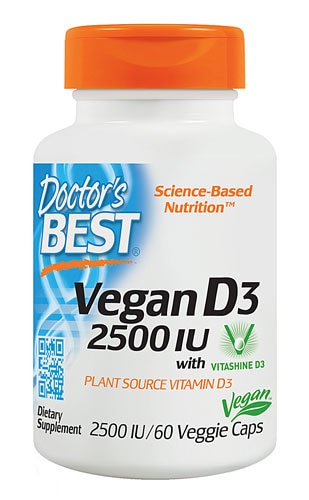Many people like to think that they can get all the vitamins they need from a balanced diet. This is great in theory, but in reality, it’s a little hard to manifest. Vegans and vegetarians have to be especially on guard against nutrient deficiencies. For example, to get the recommended daily allowance of vitamin D from cow’s milk, you need to drink 1 ½ quarts. (For most brands of fortified milks made from almonds, hemp seed, rice, and soy, you need a similar amount.) But how many adults drink that much of any kind of milk on a daily basis?
So although a well-planned diet can go a long way toward avoiding the most common pitfalls, there is a good chance vegans in particular will fall short on a few key nutrients, especially omegas, B12, Vitamin D and calcium.
Omegas
Omega-3 fatty acids are essential for heart health. Without fish or eggs, active forms of omega-3 fatty acids are scarce. Alternative sources of essential fatty acids are canola oil, soy oil, walnuts, chia seeds, ground flaxseed and soybeans, but converting these plant-based omegas to the types used by humans is ineffective at best.
What you need to know: Vegans tend to have lower blood and tissue levels of long-chain omega-3 fatty acids. You may want to consider fortified products or vegan omega supplements or both.
Vitamin B
Many bodily processes, including protein metabolism and red blood cell production, depend on vitamin B12. Without adequate levels, you risk anemia and compromising nervous system health as well as infertility, bone disease and heart disease.
Vegans and vegetarians need to realize there are no known plant foods that are natural sources of B12. Eating fortified foods, however, can help offset a potential deficit. Even so, chances are high that you will still be lacking adequate amounts—without even being aware of it. That’s because vitamin B-12 deficiency in vegans may go undetected, masked by high levels of folate (found in legumes, pulses, and many vegetables).
What you need to know: Because vegans and vegetarians can’t find plant sources of B12, vitamin supplements or fortified foods are the only reliable way to ensure you are getting an ample amount. Vegans are not the only ones who have to pay attention, as people’s ability to absorb vitamin B decreases with age. Some experts recommend that everyone, vegan or not, over the age of 50 supplement.
Vitamin D and calcium
Calcium and vitamin D are the building blocks of bone health and strong teeth. If you don’t eat milk or dairy, the foods highest in calcium, you need to consume a lot of dark green vegetables. One cup of beet greens, for example, contains 94 milligrams of calcium.
To meet the daily calcium requirement, women, aged 19 to 50, need 1,000 milligrams of calcium each day and older women require 1,200 milligrams. This translates into a lot of calcium-rich vegan milk, beans, greens or tofu. For example, you’d have to eat roughly 10 cups of steamed beat greens a day to satisfy the US RDA. Not going to happen? Many fortified products, such as juices cereals, soy milk, soy yogurt and tofu, are calcium and vitamin D enriched.
Caveat emptor: Very few foods naturally contain vitamin D, and foods fortified with vitamin D are generally in amounts too scanty to satisfy the daily requirements. Vitamin D can also be made from sun exposure. Fifteen minutes in the midday sun when the sun is strong is thought to be sufficient— as long as you don't use any sunscreen. There are a lot of variable that may impede vitamin D production: the elderly, people with darker skin, those living in northern latitudes or colder climates may be unable to produce enough trough sunlight alone.
What you need to know: If you are short on calcium or Vitamin D, consider turning to a vegan supplement. But read the labels carefully: Some calcium supplements contain oyster shells, or lanolin-derived vitamin D. In general, however, supplements—which frequently combine calcium and vitamin D because vitamin D helps with calcium absorption—are a convenient way to fill in the nutrition gaps that daily food choices can create.




